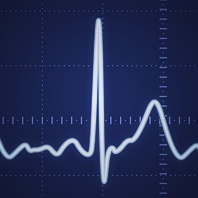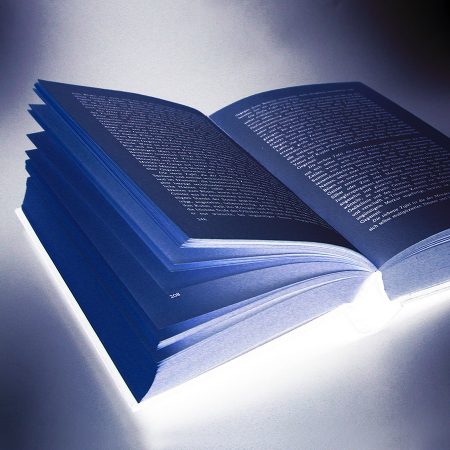What has the full moon got to do with Easter?

Quite a lot! The date of Easter is actually determined by the full moon. Quite contrary to Christmas, the Easter date is part of the changing holidays and defined as follows: “Easter is on the Sunday after the first full moon in spring.”
At first glance, this appears to be quite easy: one look at the calendar, beginning of spring is mostly on 21st March and then simply search for the next full moon and the weekend after will be Easter.
Example for 2024
Beginning of spring: Wednesday, 20th March 2024
First full moon in spring: Monday, 25th March 2024
Easter: Sunday, 31st March 2024
Upon close inspection however, it is rather more complicated. On the one hand, the beginning of spring could fall astronomically on 19th, 20th or 21st of March, but for calculation purposes, a fixed date is used, being 21st March. On the other hand, there are various exceptions in the computation that will reflect the so called ‘Easter paradox’ in certain years, namely always, when Easter takes place on a date that goes against the original rule.
Anyhow, it is good to know the interval in which the Easter date has to fall: the earliest possible Easter date is 22nd March (will happen next in 2285), the latest possible Easter is the 25th April (will happen next in 2038).

But the real interesting question is, why this Easter date has been defined as a changing holiday rather than a fixed date? We remember to have read (confirmations or objections are welcome!) that the connection was to try and prevent a solar eclipse occuring on Good Friday, as this would have been associated in the past with fear, Armageddon and gloom. By defining Easter in “one week after full moon at the latest”, it could be eliminated because a solar eclipse can only take place at new moon, just like a lunar eclipse can only occur at full moon.
Enough of theory now … wishing you a happy Easter! 🙂

2024
Beginning of spring: Wednesday, 20th March 2024
First full moon in spring: Monday, 25th March 2024
Easter: Sunday, 31st March 2024
2023
Beginning of spring: Monday, 20th March 2023
First full moon in spring: Thursday, 6th April 2023
Easter: Sunday, 9th April 2023
2022
Beginning of spring: Tuesday, 20th March 2022
First full moon in spring: Saturday, 16th April 2022
Easter: Sunday, 17th April 2022
2021
Beginning of spring: Tuesday, 20th March 2021
First full moon in spring: Sunday, 28th March 2021
Easter: Sunday, 4th April 2021
2020
Beginning of spring: Tuesday, 20th March 2020
First full moon in spring: Wednesday, 8th April 2020
Easter: Sunday, 12th April 2020
2019
Beginning of spring: Wednesday, 20th March 2019
First full moon in spring: Thursday, 21st March 2019
Easter: Sunday, 21st April 2019 (!)
(This is a so called “Easter paradox”.)
2018
Beginning of spring: Tuesday, 20th March 2018
First full moon in spring: Saturday, 31st March 2018
Easter: Sunday, 1st April 2018
2017
Beginning of spring: Monday, 20th March 2017
First full moon in spring: Tuesday, 11th April 2017
Easter: Sunday, 16th April 2017
2016
Beginning of spring: Sunday, 20th March 2016
First full moon in spring: Wednesday, 23rd March 2016
Easter: Sunday, 27th March 2016
2015
Beginning of spring: Friday, 20th March 2015
First full moon in spring: Saturday, 4th April 2015
Easter: Sunday, 5th April 2015
2014
Beginning of spring: Thursday, 20th March 2014
First full moon in spring: Tuesday, 15th April 2014
Easter: Sunday, 20th April 2014
2013
Beginning of spring: Wednesday, 20th March 2013
First full moon in spring: Wednesday, 27th March 2013
Easter: Sunday, 31st March 2013
2012
Beginning of spring: Tuesday, 20th March 2012
First full moon in spring: Friday, 6th April 2012
Easter: Sunday, 8th April 2012
2011
Beginning of spring: Monday, 21st March 2011
First full moon in spring: Monday, 18th April 2011
Easter: Sunday, 24th April 2011

Thank you for full information, quite fascinating. A Happy Easter to all
Easter Sunday is the Sunday following the Paschal Full Moon (PFM) date for the year. In June 325 A.D. astronomers approximated astronomical full moon dates for the Christian church, calling them Ecclesiastical Full Moon (EFM) dates. From 326 A.D. the PFM date has always been the EFM date after March 20 (which was the equinox date in 325 A.D.).
All definitions relating the date of Easter to astronomical full moons, the vernal equinox or the start of Spring are incorrect.
A very HPpy Easter to you all…..Enjoy the light of the moon!
Easter has nothing to do with Jesus, as it is the fertility rights celebration of the return of spring.
Worshiping the god Estar
Happy Easter to all.
Love your full moon info very much. Sometimes I am negativel affected by the full moon. Nice to be able to give my husband a heads up so he can run and hide.
Thank you so much for all the information you give us. I look forward to it each month.
Being in Australia, it must be the first full moon in Autumn.
Unfortunately, cloudy here in Tasmania that night.
Thanks for the interesting information.
Tasmania, Australia
Happy Easter everyone,Easter my favourite time of the year.Just been reading your blog that I always enjoy thank you very much for sharing all this info with us.Got me thinking of bygone days and going to school in Ireland in the 1960,s back then we always celebrated the 1st of spring on the 1st day of February it also being St Bridget,s feast day.Just wondering if anyone know,s if this has changed here over the years as the younger people say spring start,s on the 1st of March.Thank you .Cheers.
Thank you, Jorg and Pat!
It is definitely Spring here in the heart of the California wine country (1 hour north of San Francisco). The trees and grape vines have budded out and everything is looking very lush and fresh. Happy Easter to all.
email hidden; JavaScript is required
I have always loved anything to do with the Full Moon. Last nigh I was reading what a pink moon was, and it took me to past full moon dates. I looked up the year I was born, and Lo and behold, I was born on a full moon. June 19, 1951. It took me 63 3/4 yrs to find this out. It explains a lot about me finally. Lol I love your site. I hope to see this full moon Saturday @7:00 am in Houston
Happy Easter to you Debbie from Australia
Happy Easter all
I follow u happily..u keep me grounded and informed…………….
An interesting verse from the Psalms of David 121:5-7 The Lord is your keeper; the Lord is your shade at your right hand. 6 The sun shall not strike you by day, nor the moon by night.
7 The Lord will keep you from all evil; he will keep your life.
I wonder if this is where we get our notion of ‘moonstruck’ from? Here in the Pacific Northwest we experience a lot of rain like on tonight’s full moon. However I understand that in the desert, like where King David lived and wrote most of the Psalms the full moon had an effect on one especially sleeping under it. Perhaps he’s reminding us that whatever time of day it is the Good Shepherd is watching out for us!
LOVE WHAT YOU WROTE THE TRUTH
Super information that I have been trying to share with people many years. Helps support my theory that Easter fits in with a pagan holiday. Thanks for sharing!
Thank you very interesting. I love your site!
Wow so refreshing to finally have an answer to theeee question I had all my life. Answer been that Easter follows after third full moon of the year and mostly that the Easter the Sunday after the first full moon of Spring_ (Winter in my Country South Africa).
Happy Easter everybody.
My strange fascination for the moon (in all its phases) must come about because I was born at full moon on ‘Spy Wednesday’ 28th March 1945. Hence, I’ve always known the name of the full moon following the March spring equinox to be the Paschal Full Moon. John (Seville, Spain)
I thought Easter was after the 3rd full moon of the NEW YEAR!!! Never heard of SPRING being any part of it.
Easter takes place mostly after the 3rd full moon of the year, but in the year 2011 for example, it was after the 4th full moon. The crucial point is the beginning of spring.
Happy Easter to you all … many thanks on your very informative blogs ,, i really enjoy reading them and learn alot at the same time … :))
Debbie
Perth Western Australia